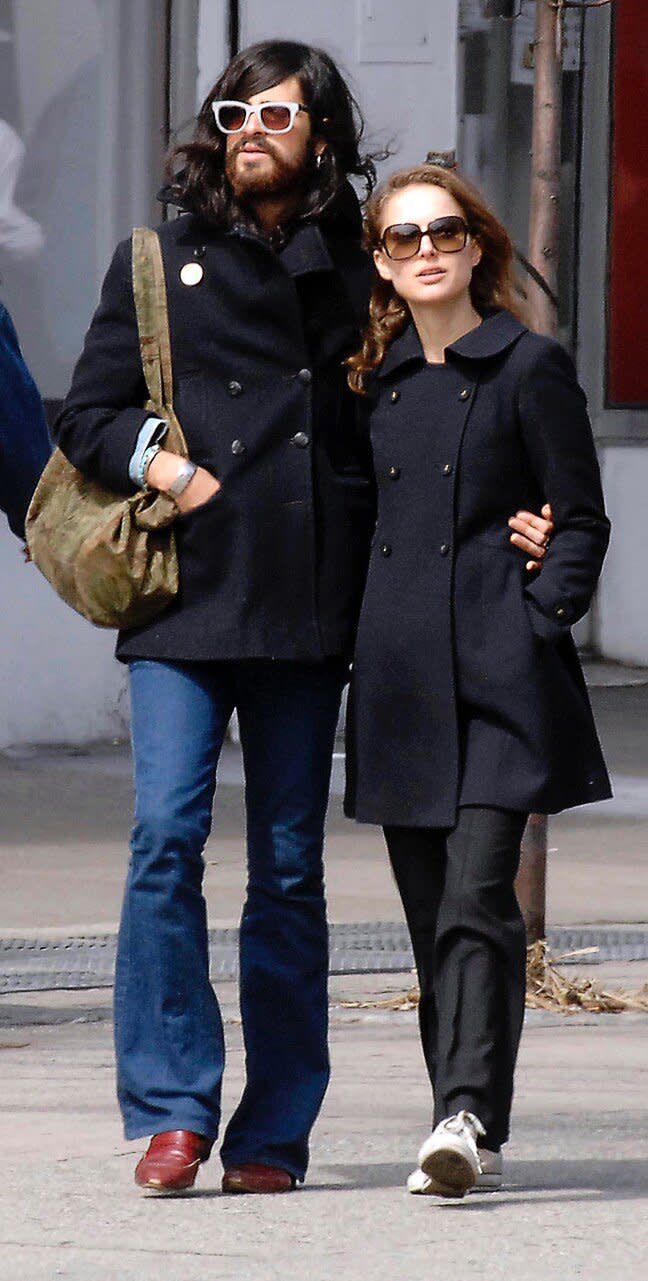Natalie Portman and Devendra Banhart's Breakup Was the End of the '00s Hipster Dream

Shutterstock/InStyle.com
It was 2008 in New York City. The idea of Instagramming our every move was still two years down the road, and we all thought Blackberry phones and "BBMing" were cool. The financial crisis had just left millions of people jobless with no prospects in sight. The shock and horror of September 11 was settling to a place in the back of people’s minds as we prepared ourselves for a new building that was soon to be erected in the hole left by the fallen towers. Rock music by bands like the Yeah Yeah Yeahs and The Strokes had reinvigorated the city’s music scene. And musician Devendra Banhart and actress Natalie Portman were everywhere.
At the time, I was 18 and living with 6 other people in a small storefront apartment in the East Village. I didn’t know it then, but 2008 was the death rattle of a certain time in culture, and more importantly, a certain time in New York City.
I had no real connection to Banhart and Portman’s relationship, but I loved them both separately. A few years earlier, Portman starred in Garden State, the quintessential indie movie that introduced me and several other sad teens™ to The Shins. She followed that role up with her portrayal of Alice, a beautiful, mysterious girl-turned-muse in Closer. Portman had gone from Queen Amidala to the manic pixie dream girl that every boy in a zip-up hoodie and skinny jeans wanted to sleep with.
The same year that Garden State was released, Banhart’s Rejoicing in the Hands album played over and over again on my iPod. He was part of my cool music awakening, the kind of artist whose lyrics made me feel things, but who would also impress music boys when they heard I listened to him.
RELATED: Kirsten Dunst and Jake Gyllenhaal's Breakup Is Forever Linked to My Parents' Divorce
Together their love story was a symbol of that very specific moment in New York. They started dating after Portman starred in Banhart’s music video for "Carmensita.” It was a confusing and problematic video where Portman dressed up as a Bollywood star — the type of “experimental” work that was so contrived but still somehow upped each of their artistic cred. She was an Oscar-nominated, Harvard grad – the smart, relatable girl that was still too hot for you. He was a tall, zany folk singer – the type of guy that would make you think he liked you and then never text back. They were the late '00s hipster dream.
They would walk around New York City in big sunglasses, holding hands and making out. They were at shows and indie bookstores, all the classic hipster spots. They didn’t talk much about their relationship, but their showy PDA-filled outings were fodder for tabloids for a few months. See: this photo of the couple sticking their tongues out following a coffee run.

The Mega Agency
They were like the rich person version of what everyone in Williamsburg was trying to be in 2008. Intellectual, but free-spirited. Snobby in one breath about freeganism, but democratic in the next while drinking a PBR.
This was an archetype I knew well. I worked at American Apparel at the time, where we would listen to playlists that included everything from Banhart’s folk songs to Usher’s “My Boo.” Irony was the goal, my coworker said as he twisted his handlebar mustache. Through my job and my nightly trips to famed dive bar Marsbar, I was a mere pawn in the hipster machine, and they were the King and Queen.
But then it all came crashing down as quickly as it started. They broke up in late 2008. Sources said it was because Portman was a “free spirit” and “complicated,” but serious about her career. Banhart was … less so apparently.
For me, though, it was the end of an era. There was no such thing as authentic, domestic hipster bliss. When I looked around me toward the end of that year, the scale of New York City’s changes were unavoidable. The housing crisis led developers to take over iconic city landmarks. iPhones were cropping up in the hands of everyone with a few dollars to spare, making digital cameras obsolete. And maybe most symbolically, CBGB became a John Varvatos.
Far from her years as an East Village hipster prototype, Portman moved out, settled down, and finally won her Oscar. Banhart cut his hair and gave several interviews where he scoffed at the"freak folk" label of his past. And I, eventually, downloaded Instagram.
Breakups That Broke Us is a weekly column about the failed celebrity relationships that convinced us love is dead.

